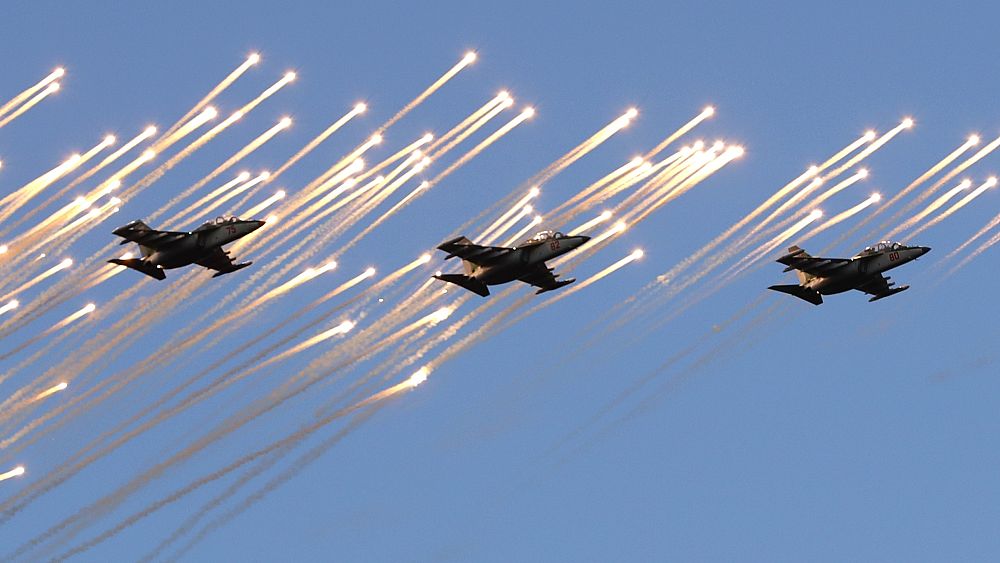Deployment of nuclear weapons in Belarus: Putin’s veiled threat to Poland

The Belarusian Ministry of Defence confirmed in a statement on Tuesday that its soldiers have begun to receive training in Russia on the handling and maintenance of the Iskander-M missile system, a tactical device capable of using nuclear warheads.
The announcement comes two weeks after Russian President Vladimir Putin declared his intention to place nuclear weapons near the border that Belarus shares with Lithuania, Latvia and Poland, all of which are NATO member countries.
Despite the calls of the Atlantic Alliance and the threats by the EU to apply new sanctions to both Moscow and Minsk, the Russian president maintains that this is nothing extraordinary since the United States has been doing it for decades in NATO countries.
A potential date Russian weapons will be transferred across the border, the installation points or how many warheads will be arranged are all currently unknown. A senior researcher at the Vienna Centre for Disarmament and Non-Proliferation, Nikolai Sokov, says it is unlikely to obtain exact data on the movements and characteristics of such weapons, although he stressed that the most important point is the message behind Putin’s decision.
“Nuclear weapons are political weapons. Changes are used for political signals. Right now we don’t have specific information on when, which weapons, how many, or where. The number will likely be something like 10 -20. Everyone really talks about the aircraft. So it should be gravity bombs on aircraft,” said Sokov.
Likewise, the Russian president reported that facilities to store tactical nuclear weapons in Belarus will be constructed and that they will be ready by July 1, adding that the Kremlin has helped modernise Belarusian warplanes so that they can carry atomic weapons.
The two neighbours have an agreement that envisions close ties in the economic, political and military spheres. Russia used Belarusian territory to launch its invasion of Ukraine and maintains a contingent of soldiers and weapons in Belarus. In this new escalation of a nuclear threat, President Alexandr Lukashenko said he was between a rock and a hard place against the will of his Russian counterpart.
Putin crosses a new red line to convey his warning to Poland
The former Soviet republic shares a 1,250-kilometre border with Latvia, Lithuania and Poland, all again NATO members. For Sokov, this warning message has led Vladimir Putin to cross another red line. However, this time the message is addressed directly at Poland, according to the researcher, due to its strong anti-Russian stance.
“I’m pretty sure that since we are talking about short-range weapons, the main target, in this case, will not be the whole of NATO, but really Poland. Poland has been always at the front lines of support to Ukraine. Poland also advocates a very tough approach to Russia. It is really talking about completely defeating Russia and changing the regime. So we’re really talking about an escalation at that specific kind of front.” Sokov said.
Tactical nuclear weapons, designed to destroy enemy soldiers and weapons on the battlefield, have a relatively short range and much lower power compared to nuclear warheads attached to long-range strategic missiles, which can wipe out entire cities.
“The deployment of nuclear warheads will not happen soon”
The deployment of Russian tactical atomic weapons in Belarus would bring them closer to potential targets in Ukraine and NATO members in eastern and central Europe. However, the big move announcement could take time.
“We cannot be sure, but it seems that Russia will not actually move nuclear weapons to Belarus soon. The next stage will be the construction of a storage facility. Conversion of aircraft is reportedly being done right now as well as training the crews. […] But the actual movement of warheads will probably be the next signal. It will be a separate step. So everything will be ready. But whether actually, Russia will move nuclear weapons or not is a decision that will be made later,” says the researcher.
Added to all this is Finland’s accession to NATO, a decision openly condemned by Russia.
“Of course, all this creates risks of a significant expansion of the conflict, but it will not affect the outcome of the special operation,” Russian Defence Minister Sergei Shoigu said on Tuesday.
Shoigu stressed that for all this Russia and Belarus are taking measures so that part of the Belarusian combat aircraft can now hit enemy targets “with nuclear weapons.”
Deployment of nuclear weapons in Belarus: Putin’s veiled threat to Poland
Source: Reporters View PH
No comments